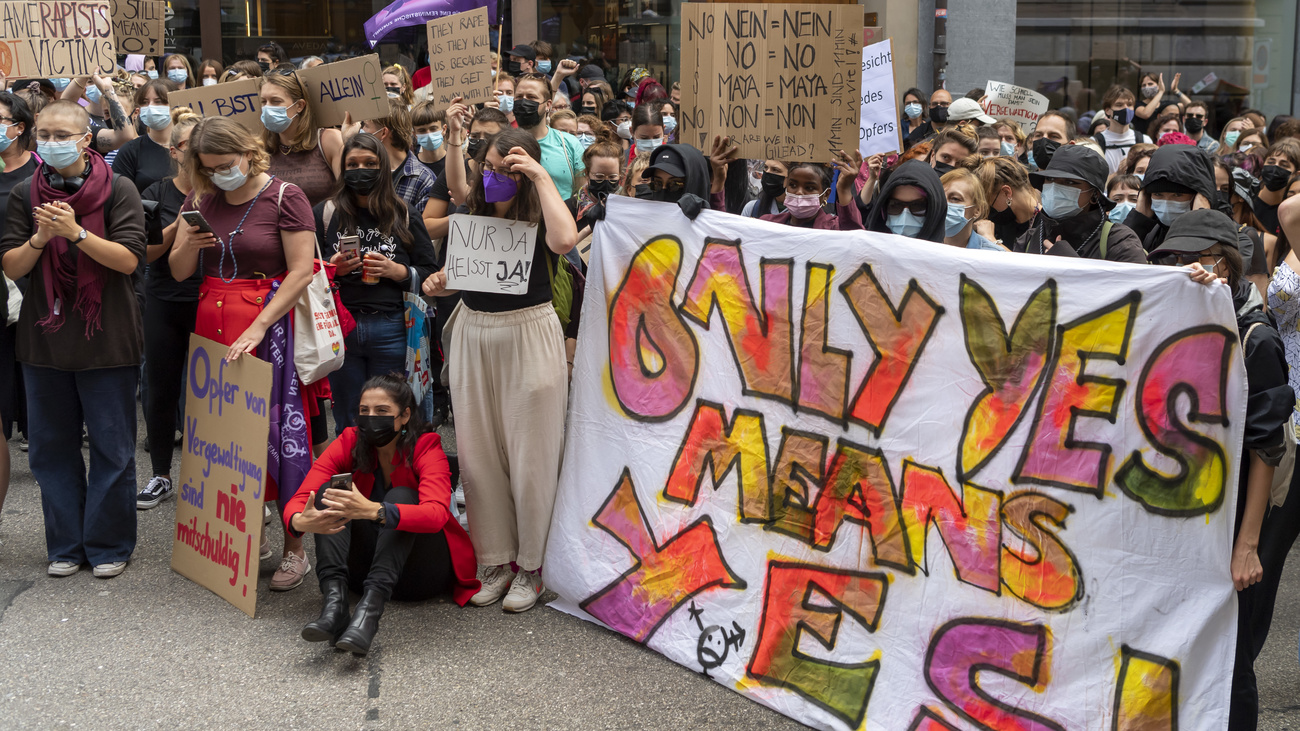
Switzerland will enforce new definition of rape from July

The new criminal law on sex offences, with a revised definition of rape ("no means no"), will come into force on July 1.
The Federal Council announced the implementation deadline on Wednesday. The date set gives the cantons time to train their authorities and carry out any other preparatory work, the government wrote in a press release. The Swiss parliament adopted this long-awaited and controversial revision last year.
+ How a new definition of rape could impact Swiss law
The core of the reform is the extension of the offences of rape and sexual coercion. Until now, rape was defined restrictively. Only non-consensual vaginal penetration of a woman by a man was considered rape. And the victim had to have shown some resistance.
“No means no”
This precondition will no longer be necessary. From now on, any non-consensual penetration, whether oral, vaginal or anal, of a man or woman will be considered rape. Rape will therefore no longer be limited to the sexual act, but will include any similar act involving penetration of the body.
The two chambers of parliament debated the definition at length. The Senate wanted it to be based on the strict expression of refusal while the House of Representatives preferred to focus on consent (“only a yes is a yes”).
In the end, it was the “no means no” solution that prevailed, but it will take into account the victim’s state of shock. If the victim is petrified with fear and is unable to express their refusal or defend themselves, the perpetrator will have to answer for rape or sexual assault and coercion.
This decision has been described as necessary and historic by the political left and women’s organisations, even though they preferred the solution of strict consent.
Stealthing and revenge porn
The new criminal law will also punish “stealthing”, the offence of discreetly removing a condom during consensual sex, or failing to use one, without the partner’s knowledge. “Revenge porn i.e. the non-consensual disclosure of sexual content, will also be punishable.
On the other hand, minors who make, possess or consume images or films that involve themselves or make them accessible to another person with their consent will not be punished. The provision is aimed in particular at pornographic selfies, which are increasingly common among young people.
This news story has been written and carefully fact-checked by an external editorial team. At SWI swissinfo.ch we select the most relevant news for an international audience and use automatic translation tools such as DeepL to translate it into English. Providing you with automatically translated news gives us the time to write more in-depth articles. You can find them here.
If you want to know more about how we work, have a look here, and if you have feedback on this news story please write to english@swissinfo.ch.

In compliance with the JTI standards
More: SWI swissinfo.ch certified by the Journalism Trust Initiative





























You can find an overview of ongoing debates with our journalists here . Please join us!
If you want to start a conversation about a topic raised in this article or want to report factual errors, email us at english@swissinfo.ch.